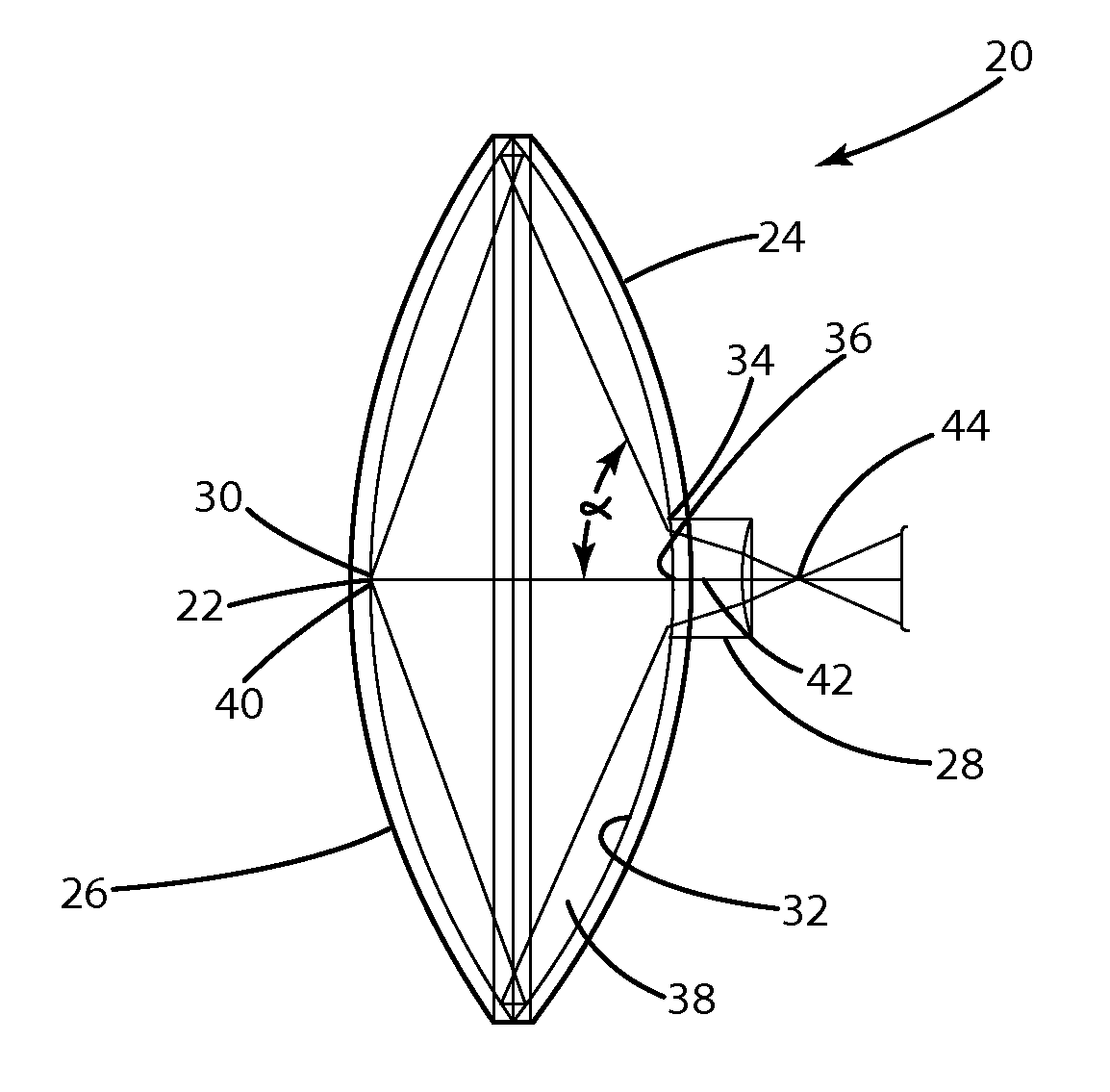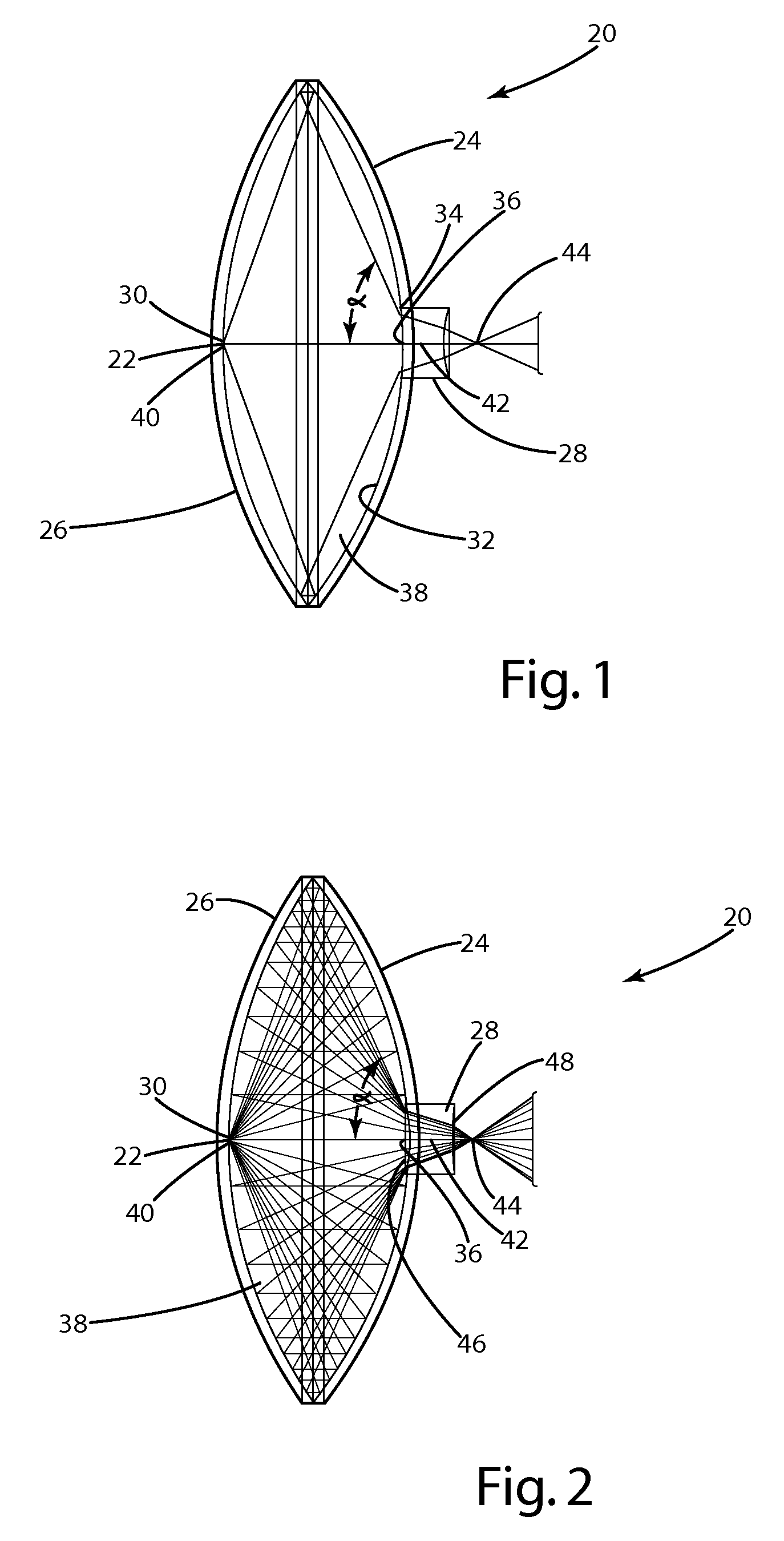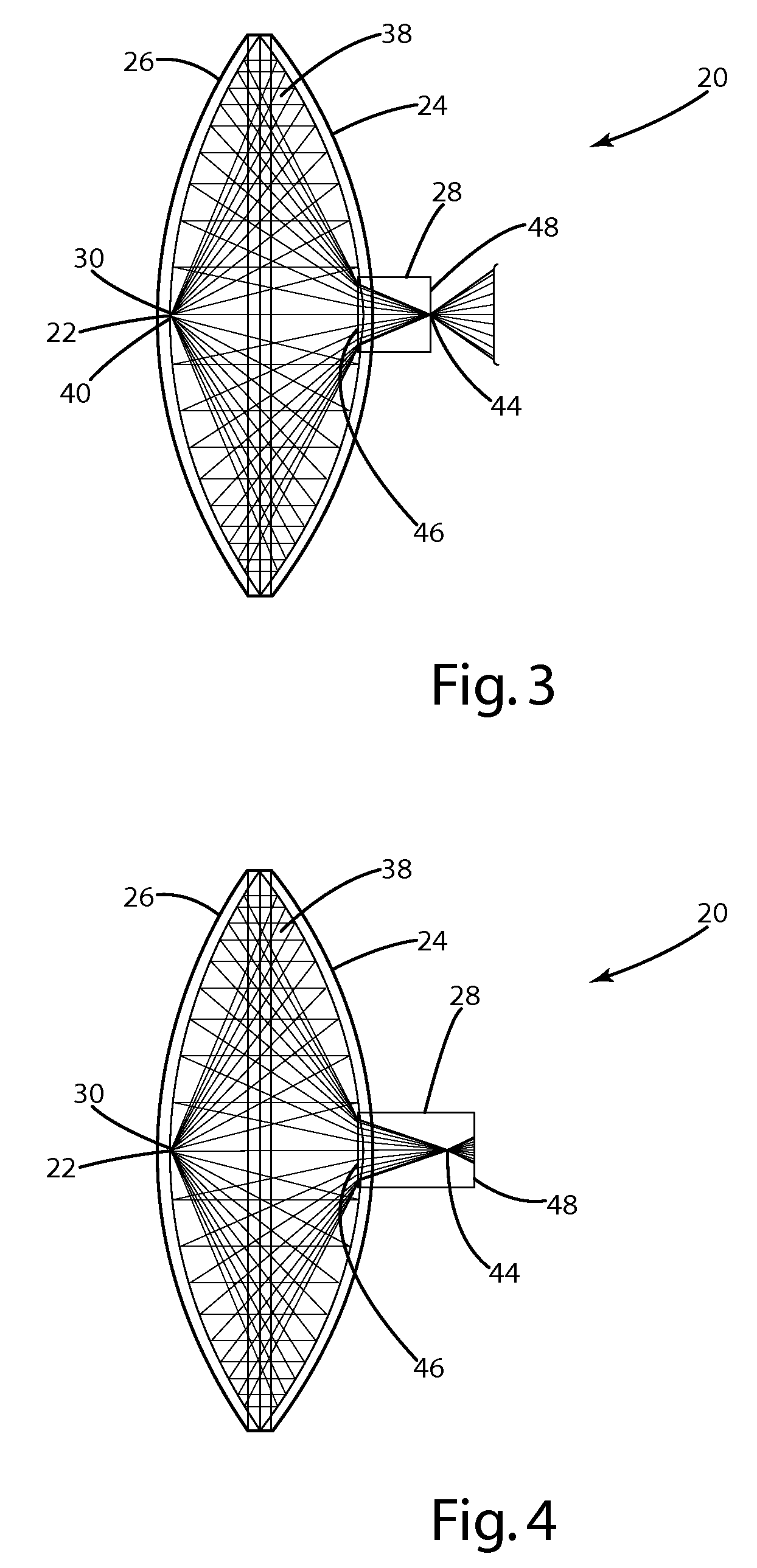High efficiency optical coupler
a high-efficiency, optical coupler technology, applied in the direction of instruments, lighting and heating apparatus, fibre light guides, etc., can solve the problem of source diminishing the light coupling efficiency, and achieve the effect of reducing system aberration, reducing light path leakage, and large variability
- Summary
- Abstract
- Description
- Claims
- Application Information
AI Technical Summary
Benefits of technology
Problems solved by technology
Method used
Image
Examples
Embodiment Construction
[0023]A high efficiency optical coupler in accordance with an embodiment of the invention is illustrated in FIG. 1 and generally designated 20. The high efficiency optical coupler 20 includes a light source 22, first reflector 24, second reflector 26, and negative element 28. The light source 22 is located generally at the vertex 30 of the second reflector 26 and transmits a light output or optical radiation over a solid angle of almost 2 Pi steradians (an NA of 0.95) onto the interior surface 32 of the first reflector 24. The interior surface 32 of the first reflector 24 reflects the light from the light source 22, thus changing the path of light emitted by the light source 22. The first reflector 24 is a conic and has an additional function of collimating the light from the light source 22, thus transferring a plane wave to the second reflector 26. Light is then reflected off the second reflector 26 toward the negative element 28 aligned with an aperture 34 at the vertex 36 of the...
PUM
 Login to View More
Login to View More Abstract
Description
Claims
Application Information
 Login to View More
Login to View More - R&D
- Intellectual Property
- Life Sciences
- Materials
- Tech Scout
- Unparalleled Data Quality
- Higher Quality Content
- 60% Fewer Hallucinations
Browse by: Latest US Patents, China's latest patents, Technical Efficacy Thesaurus, Application Domain, Technology Topic, Popular Technical Reports.
© 2025 PatSnap. All rights reserved.Legal|Privacy policy|Modern Slavery Act Transparency Statement|Sitemap|About US| Contact US: help@patsnap.com



